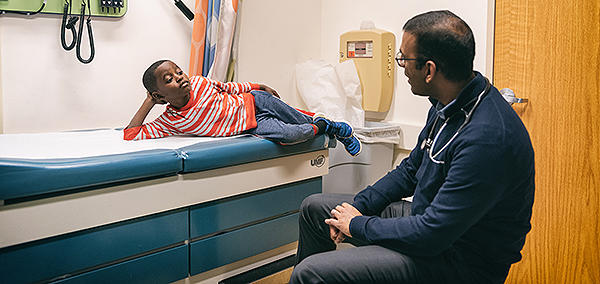Diversity and Inclusion

Our hematology/oncology program at Dana-Farber/Boston Children’s is committed to moving toward greater fairness, opportunity, and inclusivity to reduce inequities and better serve our patients and each other. We acknowledge that American medical institutions, including ours, have contributed to perpetuating racism and injustice, and our hematology/oncology program must reflect on our past in order to be an agent of change. As a reflection of our program’s commitment to meaningful change, a Diversity, Equity, and Inclusion (DEI) Taskforce has been convened, and our leadership has devoted substantial funding toward advancing its mission. The commitments below, derived from the critical appraisal and work of our fellowship program, DEI taskforce, and leadership, represent some of our current activities. We are committed to creating a more open, welcoming, and equitable program through systemic improvement in our policies, practices, and priorities through the following:
- A focus on the recruitment of diverse fellow trainees, inclusive of and not limited to race, ethnicity, socioeconomic status, disability, gender identity, partnership status, and sexual orientation. In particular, we seek to increase the number of fellows from underrepresented in medicine groups so that the diversity of our physicians reflects the diversity of the patients to whom we provide care.
- Promoting and conducting research on the impact of social determinants of health on outcomes for children with cancer and blood disorders, and on confronting systemic racism and bias in medical care and medical education (see our list of recent relevant publications from our faculty and fellows).
- Intentional funding and coordination to support three external speakers per year on the topics of diversity, equity, and/or inclusion.
- Revamping our education of trainees and faculty to highlight topics of diversity and inclusion in healthcare and social determinants of health embedded within our division-wide conferences and retreats.
- Development of a three-year pipeline program to provide 75% salary support for six underrepresented minority (URM) technician/research assistants within the department, to be matched by Principal Investigators, with a goal to increase URM technician/RA/Clinical Research Coordinator representation to 10-12% by 2025
For more information about institutional diversity and inclusion initiatives, check out these additional resources:

 Translate
Translate